Wish You Could Predict the Behavior of Invasive Weeds? You Can!
What if you could predict which nonnative plant species would become invasive weeds and when? Would it change your weed management plan?…

What if you could predict which nonnative plant species would become invasive weeds and when? Would it change your weed management plan?…

We are today [Friday 8th December] thrilled to be launching Cambridge Core Share, a new sharing service providing the academic community and wider public with greater access to research.…

The animal article of the month for December is ‘Energy and protein requirements of Santa Ines lambs, a breed of hair sheep‘.…

Since the U.S. EPA’s 2005 ban of methyl bromide, winter strawberry growers have faced a perplexing dilemma. How do you control those pesky broadleaf weeds, grasses and nutsedge species that emerge through the transplanting holes in polyethylene mulch?…
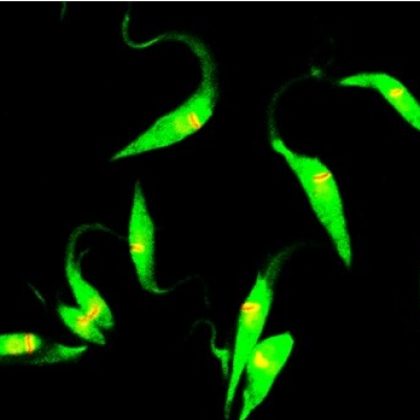
The latest Paper of the Month from Parasitology is by Amanda F. Francisco, Shiromani Jayawardhana, Michael D. Lewis, Martin C. Taylor, and John M.…

The editors of Mathematika are pleased to announce a special issue of the journal dedicated to Klaus Friedrich Roth, which is now available on Cambridge Core.…

How do the voices and actions of the members of the Black Lives Matter (BLM) movement speak to us in the Catholic theological academy?…

As Dawn Burnham and I wove our way through the Htamanthi Wildlife Sanctuary in the north of Myanmar, writes David Macdonald, we were accompanied by a remarkable team.…

Low levels of vitamin D are strongly associated with stunting among Ecuadorian children, according to a new study published in Public Health Nutrition.

Study finds that snow leopards only use three quarters of the presumed snow leopard habitat in Himachal Pradesh, India, raising questions about the way we map the cat’s distribution.…
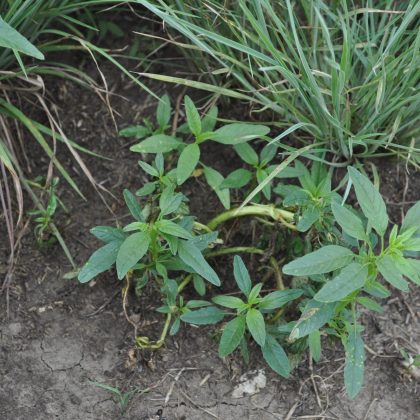
Waterhemp is already one of the most problematic weeds in the Midwest and South. But researchers writing in the latest edition of the journal Weed Science say its control challenges are getting even tougher. …

Conflict-related displacement is increasingly central in shaping land claims, property relations, and modes of belonging in the African continent. In settings of forced mobility and resettlement, land property claims define the continued struggles over community membership and access to resources.…

On the cover of HPL: ‘Targets for high-repetition rate facilities: needs, challenges and perspectives’ by I. Prencipe et al “An important challenge will be the development of a reliable supply chain of high quality targets,” said Prof.…

The animal article of the month for November is ‘Sows with high milk production had both a high feed intake and high body mobilization‘.…

Protein found in Quorn vegetarian foods may be just as beneficial as animal proteins, new research published in the British Journal of Nutrition suggests.
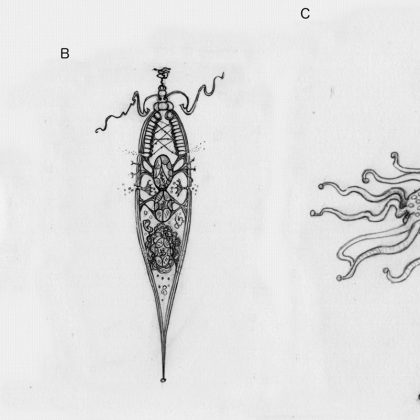
Hollywood films and Science-Fiction literature fuel the fantasy that aliens are other-worldly, monster-like beings, who are very different to humans. But, new research suggests that we have more in common with our extra-terrestrial neighbours, than initially thought. In a new study published in the International Journal of Astrobiology scientists from the University of Oxford show for the first time how evolutionary theory can be used to support alien predictions and better understand their behaviour.
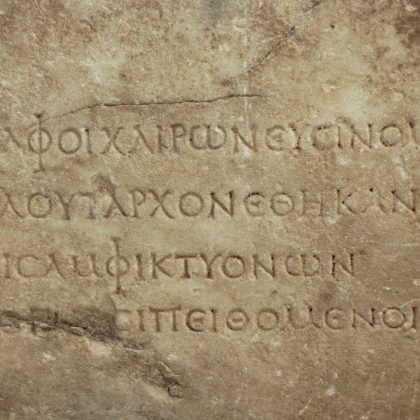
The discourse of “equality,” which originated in democratic Athens, revived in the first century CE, in response to growing inequality between the classes. …

Demons were an important part of Late Antique life across religious divides. This article explores how the authors of the Babylonian Talmud “think with” the demonic to produce meaningful rabbinic spaces.…

The Commentary on the Torah of Rashi (Solomon ben Isaac; 1040–1105) stands out as the most widely studied and influential Hebrew Bible commentary ever composed.…

Heidegger’s descriptions of Dasein’s “finitude” (Endlichkeit) in Sein und Zeit are based on Dasein’s experience of thrownness and mortality, and not on theology and the relation to God, methodologically suspended early on in the treatise.…
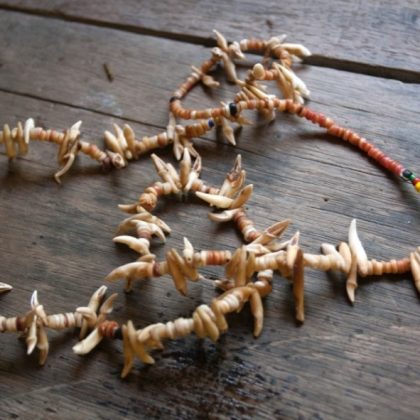
Cultural value of bat teeth means traditional hunting customs are “a positive, not a negative” Bats often get the short end of the stick—when you look around in October, they’re featured in Halloween decorations right up there with unsavory characters like monsters and ghosts.…
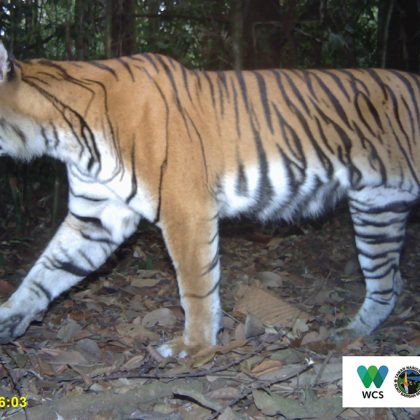
A new scientific publication from WCS (Wildlife Conservation Society) and the Bukit Barisan Selatan National Park Authority looks at the effectiveness of the park’s protection zone and finds that the density of Sumatran tigers has increased despite the continued threat of living in an ‘In Danger’ World Heritage Site.…

Cambridge University Press is proud to support International Open Access Week, running from 23rd to 29th October 2017. As a leading University Press we are actively engaged with Open Access, and our Open Access publishing platform, Cambridge Open, serves authors and the wider community by publishing high-quality, peer-reviewed OA content. Follow our Facebook and Twitter pages this week to read blog posts from our Open Access team, read our most-read Open Access articles, and learn more about Cambridge Open.

The development of our Open Access programme, Cambridge Open, continues to be a major area of importance for the Press, both Green and Gold OA.

A new study led by Oxford scientists has produced the first robust estimate of the number of Sunda clouded leopards remaining in the state of Sabah, Malaysian Borneo.…
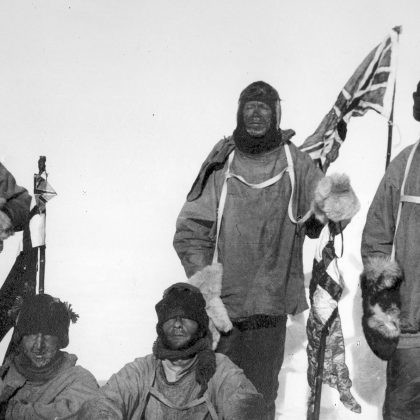
On February 11, 1913, the world woke to the headline “Death of Captain Scott. Lost with four comrades. The Pole reached.…

An iconic African eagle species made famous by TV presenter Steve Backshall is soaring towards extinction, a South African scientific study has found.…

The animal article of the month for October is ‘Animal Board Invited Review: Comparing conventional and organic livestock production systems on different aspects of sustainability‘.…

Last year marked the anniversary of two of the most important scholarly debates about modern German history and the Holocaust: the so-called Historikerstreit (“historians’ quarrel”) that erupted thirty years ago in West Germany, as well as the lively debate sparked exactly a decade later by the publication in 1996 of Daniel J.…

Lots of research has been conducted on the ecology and biology of invasive plants. But are we really any closer to understanding why some plant invaders succeed and others don’t?…

Scientists have discovered an important new reason to focus on removal of invasive plant species. A recent study featured in the journal Invasive Plant Science and Management shows that removing invaders alongside a stream or river can greatly improve the biodiversity of aquatic organisms.…

Heightened awareness of concepts relating to both mental health and mental illness are essential to ensure that appropriate and well resourced mental health services are provided for those in need.…

World Mental Health Day is observed on 10 October every year, with the overall objective of raising awareness of mental health issues around the world and mobilizing efforts in support of mental health.…

The latest Paper of the Month in Parasitology is The role of rare innate immune cells in Type 2 immune activation against parasitic helminths by Dr.…

Himalayan wolves form an evolutionary distinct wolf unique to the high altitude ecosystems of the Himalayas and the Tibetan Plateau. These wolves face many threats from illegal poaching due to depredation and traditional uses of body parts to habitat encroachment by livestock and associated decreasing wild prey populations.…

Public Health Nutrition Editorial Highlight: ‘Changes in dietary intake following a culturally adapted lifestyle intervention among Iraqi immigrants to Sweden at high risk of type 2 diabetes: a randomised trial‘.…

Cambridge Core, the combined ebook and journal platform, launched in September 2016. The site was informed by extensive market research and feedback from our users including over 9,000 researchers and librarians.…

Maintaining water quality is a global concern and, with the onset of climate change and the increased expansion of the human population, it is likely only to become even more important in the future.…

Cambridge University Press welcomes 12 new journals in 2018, including 1 brand new launch title, 2 open access titles, and 9 from new society partners.…

During Peer Review Week, Juanita Goossens-Roach and Bridget McHugh looked at how peer review has changed over the years and throughout the ages, spending a fascinating morning at the University Library delving into hand-written correspondence from authors such as Victor Rothschild, A E Housman and Alan Turing.…

The unlikely coincidence of a local hospital record and a census led by a pioneering physician has enabled the first study charting rates of venereal disease in 18th century England, revealing high infection levels in the city of Chester at this time.…
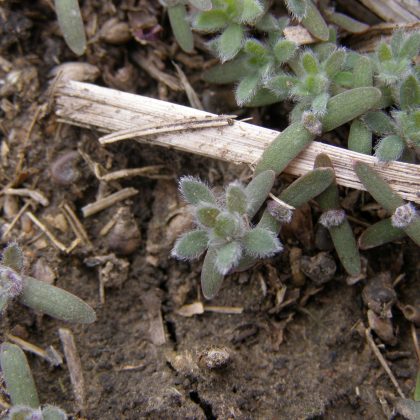
The latest issue of the journal Weed Science contains an article with intriguing new insights about the control of herbicide-resistant kochia, a weed that competes with both dryland and irrigated crops across the Great Plains states.…

What does one do after one has reached apprehension of God? According to Maimonides in his Guide of the Perplexed, there is indeed more to be done.…

This article examines the parallel strategies taken by Hermann Cohen (1842–1918) and contemporaries in the Eastern European Lithuanian Talmudic academies to develop modernizing interpretations of Jewish text, tradition, and law.…

Fall-planted cover crops are frequently a component of integrated weed control programs in herbicide-resistant soybeans. But does it matter which cover crop is used?…

Introduction The annual Forum on Business and Human Rights is the UN’s platform for multi-stakeholder dialogue to assess the progress made by states and business enterprises in moving the three pillars of “Protect, Respect and Remedy” of the Guiding Principles on Business and Human Rights from paper to practice.…

In a paper published Aug. 3 in the International Journal of Astrobiology, Daniel Whitmire applying a statistical concept called the principle of mediocrity and argues that if we are typical, it follows that species such as ours go extinct soon after attaining technological knowledge.

Cambridge University Press often delivers talks and training sessions for early career researchers on a variety of topics related to publishing.…

The peer review process at Cambridge University Press includes the ‘go/no go’ decision of our Syndicate body for every new book and journal, assuring the integrity and quality of everything we publish.…

The animal article of the month for September is ‘Review: Divergent selection for residual feed intake in the growing pig‘. Improving feed use in livestock remains a challenge in most animal species.…

Cambridge University Press published the first issue of Behavioral and Brain Sciences (BBS) in 1978 and, in so doing, established a new forum for discussion of important and often controversial research in cognitive science.…

As Editor of the Journal of Asian Studies, as I prepare to go to the AAS Annual Conference (when our editorial board meets) or AAS-in-ASIA (where I hold “meet-the-editor” sessions), I spend some time thinking about the articles we have published recently and have in the pipeline.…

Psychological Medicine (PSM) was started as a journal in 1970, so is a fairly ‘old’ publication. This was of course before online peer review systems existed, indeed before even computers in offices existed.…

One of my favourite tasks at the Press is to start new journals. It is exciting to innovate and experiment with completely new journals.…

The central importance of peer review and its associated challenges and pain points means that it is something publishers and others in the information space think about a lot nowadays.…

In celebration of JFM Editorial Board member Detlef Lohse recently being awarded the APS 2017 Fluid Dynamics Prize, I present a special blog entry on his work.…

Residents from the neighborhood of Los Rosales (Madrid, Spain), public health practitioners, and researchers worked together in this citizen science project. We analyzed how the food environment influenced residents’ diets from a multi-level perspective in Madrid. The results have been published in Public Health Nutrition.

With North Korea in the news, we would like to call attention to the range of research the Journal of East Asian Studies has published on the country.…

Introduction to the current issue (17, 2) The current issue of the Journal of East Asian Studies (17, 2) brings together a number of pieces on China, Taiwan and Hong Kong, beginning with Qingjie Zeng’s discussion of Xi Jinping’s anti-corruption campaign.…

Public Health Nutrition Editorial Highlight: ‘Assessing the validity of commercial and municipal food environment data sets in Vancouver, Canada‘. Authors: Madeleine IG Daepp and Jennifer Black.…
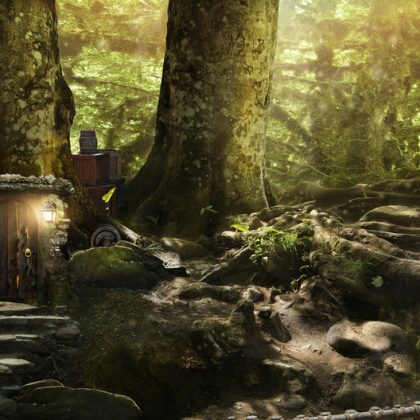
Beliefs in magical creatures can impact the protection of biodiversity and the field of conservation needs to consider them seriously, researchers have warned. According to a new study, by the University of Leeds and Cardiff University, the conservation of threatened species has much to gain from acknowledging people’s spiritual, magical and cultural beliefs.
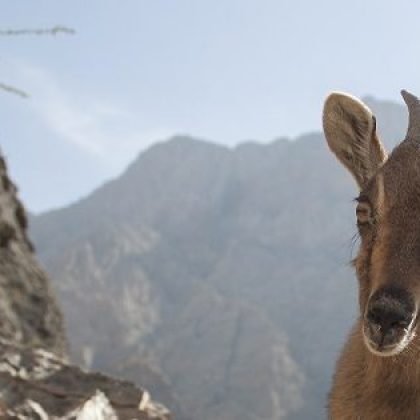
Species distribution models are a method used by conservationists to make inferences from limited data sets, in a format that can facilitate conservation management across landscapes. They are particularly suitable for filling gaps in knowledge of scarce populations and those inhabiting inaccessible terrain. The Arabian tahr is one such species. Inhabiting the precipitous cliffs of north eastern Arabia, the species is rarely seen and poorly known.

Researchers at the University of York working on a 700-year old abandoned agricultural site in Tanzania have shown that soil erosion benefitted farming practices for some 500 years. The study, published in Quaternary Research, shows that historical practices of capturing soils that were eroded from the hillside could be valuable to modern day farming techniques.

Sean Vanatta’s article Citibank, Credit Cards, and the Local Politics of National Consumer Finance, 1968–1991, published in Business History Review, is the winner of the 2016 Henrietta Larson Article Award.…

A study by researchers led by Dr Gerda Pot at King’s College London has suggested that children who skip breakfast regularly may not be consuming the daily amounts of key nutrients for growth and development that are recommended by the UK government.…

It is well known that physical activity is good for both our physical and mental health. There are many different conditions that physical activity can help prevent or improve: stroke, cancer, heart disease, type 2 diabetes and depression, to name a few.…

The animal article of the month for August is “Factors of importance when selecting sows as embryo donors”. An adequate selection of embryo donors is a key point of and efficient embryo transfer (ET) program.…

The Nutrition Society Paper of the Month for July is from Public Health Nutrition and is entitled ‘Identifying attributes of food literacy: a scoping review‘.…
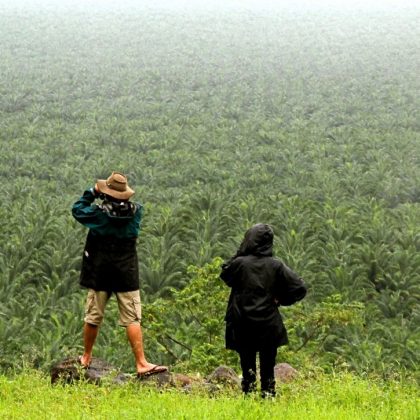
In a recent study published in Bird Conservation International, authors from Perth Edith Cowan University have carried out research in Papua New Guinea to understand how logging and palm oil plantations is affecting rare bird numbers.…

On the cover of HPL: ‘Review on high repetition rate and mass-production of the cryogenic targets for laser IFE’, by I.V.…

Avalanches and mudslides are a common occurrence in mountainous regions across the world and they can often cause severe loss of property and life.…
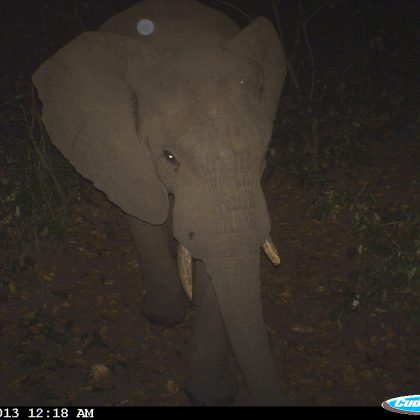
Researchers have published a new study in the journal Oryx that employed camera traps to investigate crop use by African elephants along the boundary of Udzungwa Mountains National Park in south-central Tanzania.
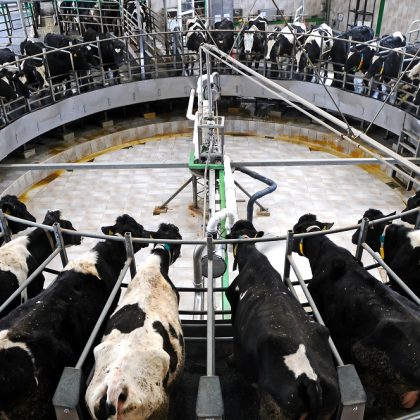
Political strategies used by the dairy industry in France have the potential to hinder the development and implementation of effective public health policies, particularly the dietary guidelines. It is important to question the relationships between the food industryand the government, but also with health professionals and researchers.

A study recently published in the international conservation journal Oryx shows that this charming group of amphibious mammals have undergone a dramatic countrywide decline in China, and are extirpated over much of their former ranges.

Logging roads makes valuable Musk Deer more accessible to poachers, who hunt for the musk gland found in males, a substance that, gram from gram, is more valuable than gold. Find out more from the latest study by Oryx.

Cambridge University Press (CUP) is working with OpenAthens to upgrade and improve the existing implementation of OpenAthens authentication for Cambridge Core and other online resources from Cambridge.…

Cambridge University Press has made an agreement with Dutch institutions which combines access to Cambridge’s subscription content with Open Access (OA) publishing in our hybrid and wholly OA journals.…
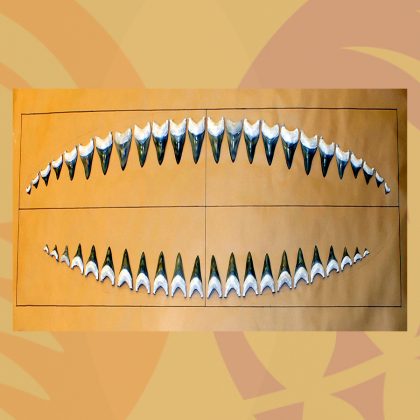
University of Florida researchers are taking down the Plexiglas walls between museum collections and K-12 classrooms with an educational program that uses 3-D printed fossils and hands-on lessons to spark young learners’ interest in science, technology, engineering and math. The researchers published an assessment of their pilot lesson plan in “Paleontological Society Special Publications” The study '3-D Fossils for K-12 Education: A Case Example Using the Giant Extinct Sharkcarcharocles Megalodon'

In 1998, Thomas Hales and Samuel Ferguson announced a proof of the Kepler conjecture – a famous problem in discrete geometry that had remained unsolved for over 300 years.…

The paper, ‘21st century civil aviation: Is it on course, or is it over confident and complacent? – thoughts on the conundrum of aviation and the environment’ published in the Aeronautical Journal, Vol 121, Issue 1236, pp 115-140, 2017 by D.…

The animal article of the month for June is ‘Invited review: Nutrient sensing receptors for free fatty acids and hydroxycarboxylic acids in farm animals‘. …

The Nutrition Society Paper of the Month for June is from British Journal of Nutrition and is entitled ‘Dietary fat and physiological determinants of plasma chylomicron remnant homoeostasis in normolipidaemic subjects: insight into atherogenic risk‘.…

In this article, I enter the discussion over what constitutes Catholic biblical interpretation to argue that in order for biblical interpretation to be “Catholic,” it must integrate hermeneutical approaches that foreground real readers within the context of lived realities.…

Commercial dry-season rice cultivation in Cambodia’s Tonle Sap floodplain increasingly threatens the Critically Endangered Bengal florican, a new study published in Oryx says. This and other threats puts the species at high risk of extinction in the near future, unless it is managed appropriately.

Inside the APA: An Update on the Journal of the APAs by Amy Ferrer, John Heil, and Sally Hoffmann Most learned societies in the US have had journals for decades, but not the APA!…

Female sexual and sexualized bodies are constructed in multiple ways. One construction posits that females are autonomous and self-determining, and advocates for unimpeded choice regarding sexual expression, bodies, and reproduction.
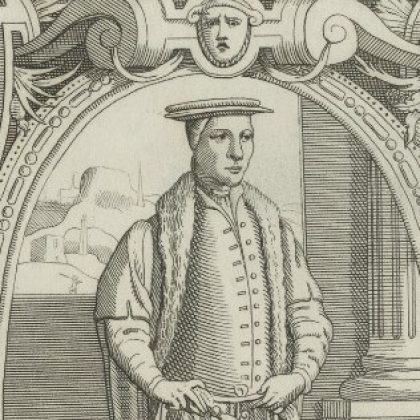
Francis Samwell was an auditor of the Exchequer around the time that Burghley ordered Heywood’s documentation to be re-examined. Perhaps at that time Samwell came across the poem and made his copy of Heywood’s ‘Swannys Songe’.
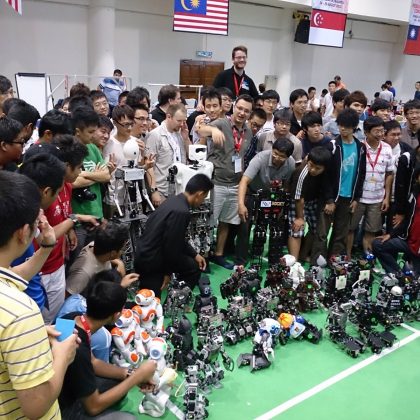
Jacky Baltes, guest Editor for Knowledge Engineering Review, introduces the special issue on Humanoid Multi-Event Robot Athletes The FIRA HuroCup competition was started in 2002 to provide a challenging and state of the art benchmark problem for humanoid robots.…

Lucy Donkin, Lecturer in History and History of Art at the University of Bristol, discusses her forthcoming article, ‘Mons manufactus: Rome’s man-made mountains between history and natural history’, in Papers of the British School at Rome (2017), which will shortly be published via FirstView on Cambridge Core.

Online purchase and download of articles is now available for individual users on Cambridge Core. From search results, journal issues or individual article landing pages, readers can now purchase articles instantly on the platform.…

The paper, ‘Numerical investigation of the fatal 1985 Manchester Airport B737 fire’ published in the Aeronautical Journal, Vol 121, Number 1237, pp 287-319, 2017 by Edwin R Galea, Zhaozhi Wang, and Fuchen Jia, provides an explanation for why 55 people lost their lives in the B737 fire at Manchester airport in 1985.…
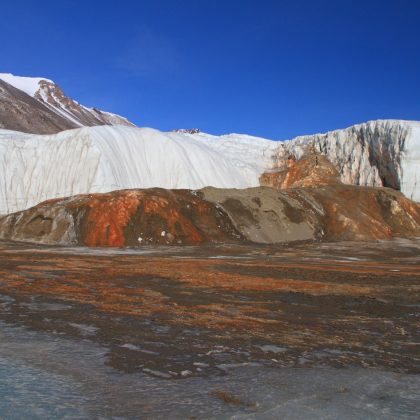
A study published in the Journal of Glaciology has solved a 100 year-old mystery involving a waterfall in Antarctica known as Blood Falls. New evidence links Blood Falls, a red waterfall in Antarctica, to a large source of salty water that may have been trapped underneath Taylor Glacier for more than a million years.

The Nutrition Society Paper of the Month for May is from Nutrition Research Reviews and is entitled ‘The progression of coeliac disease: its neurological and psychiatric implications‘, by Giovanna Campagna, Mirko Pesce, Raffaella Tatangelo, Alessia Rizzuto, Irene La Fratta, Alfredo Grilli Coeliac Disease (CD) was recently presented by The European Society for Pediatric Gastroenterology, Hepatology and Nutrition, describing it as “… an immune-mediated systemic disorder elicited by gluten and related prolamines in genetically susceptible individuals and characterized by a variable of gluten-dependent manifestations, CD-specific antibodies, HLA-DQ2 or HLA-DQ8 haplotypes, and enteropathy” [1].…
The Turkish government continues to rule by decree in the aftermath of the declaration of a state of emergency (Olağanüstü Hal) following the coup attempt on July 15, 2016.…

Researchers from the University of Otago, Wellington and the University of Auckland, have found that a ‘home-grown’ naturally occurring probiotic reduces the risk of developing diabetes during pregnancy (gestational diabetes) and lowers fasting blood sugar.…
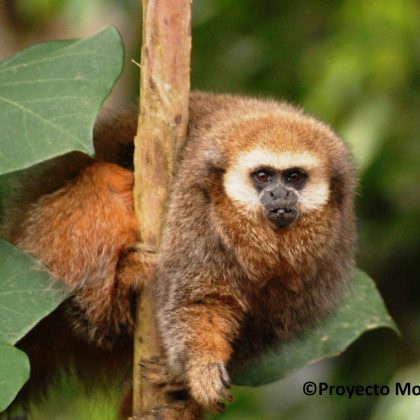
The latest EC Perspectives paper from Environmental Conservation is entitled ‘Rapid conservation assessment for endangered species using habitat connectivity models‘ by Danica Schaffer-Smith, Jennifer J.…
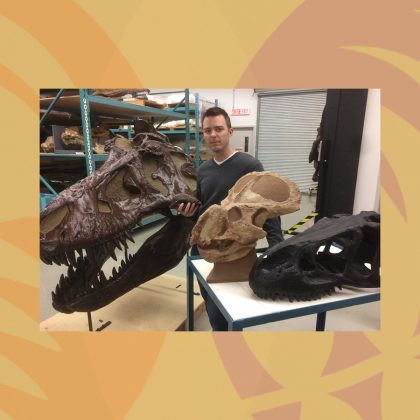
A paleontologist at the Canadian Museum of Nature is countering decades of studies that assert that some dinosaurs can be identified as male or female based on the shapes and sizes of their bones.

Growing up on an island or mainland location can shape the way children think about wildlife, including which species they prefer, according to North Carolina State University research, published in Environmental Conservation. Comparison surveys of children living in the Bahamas and in North Carolina reveal significant differences and potential challenges for wildlife-conservation efforts on islands.

Great user experience is at the heart of everything we do with Cambridge Core. From the very start of development, the needs of our users and customers have been our central focus with regular user-testing and consultation with the community.…

Cambridge Core turned six months old in March! To celebrate this milestone, we’re delighted to share free access to a range of chapters and articles from over 20 subject areas.…